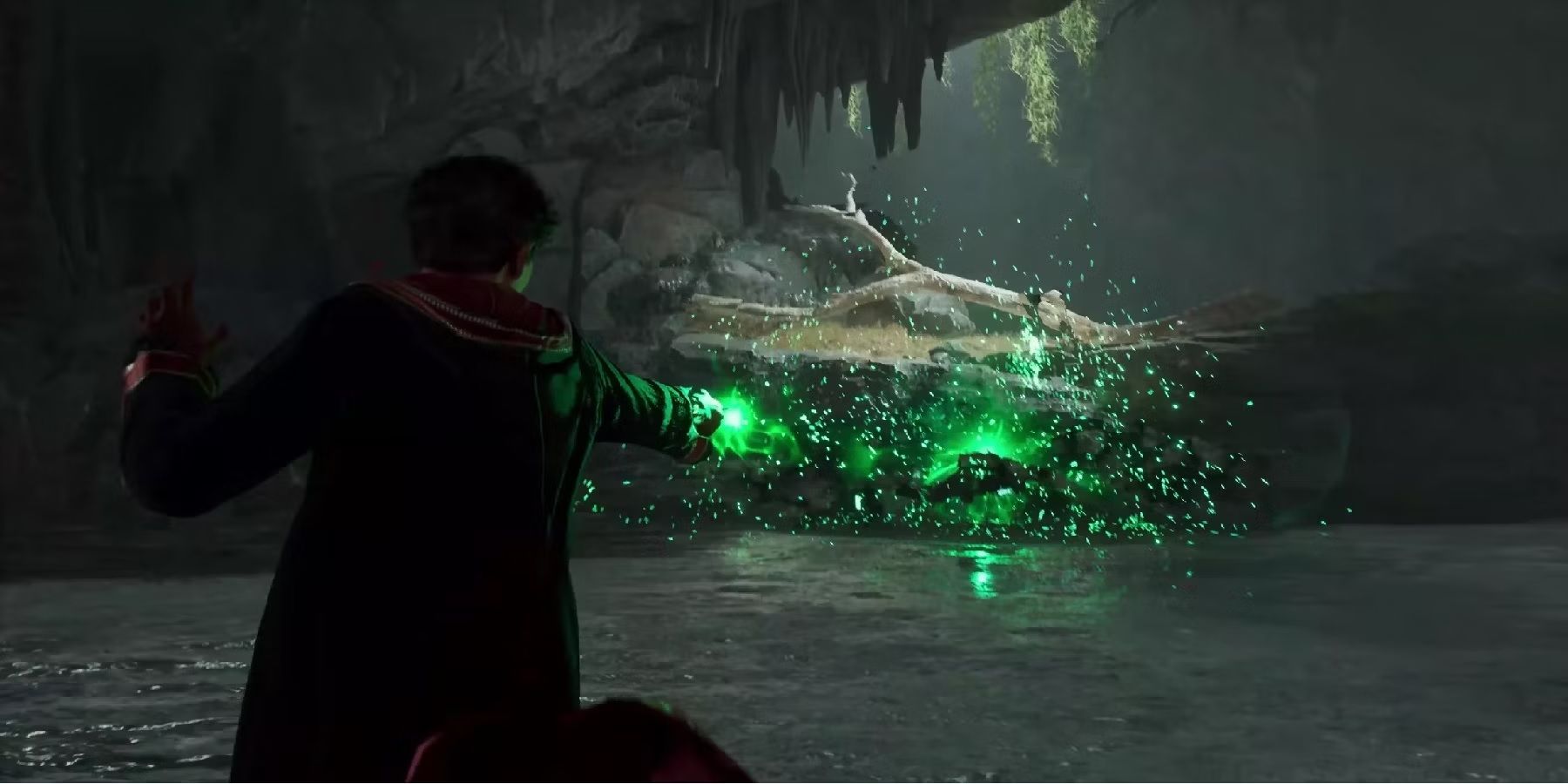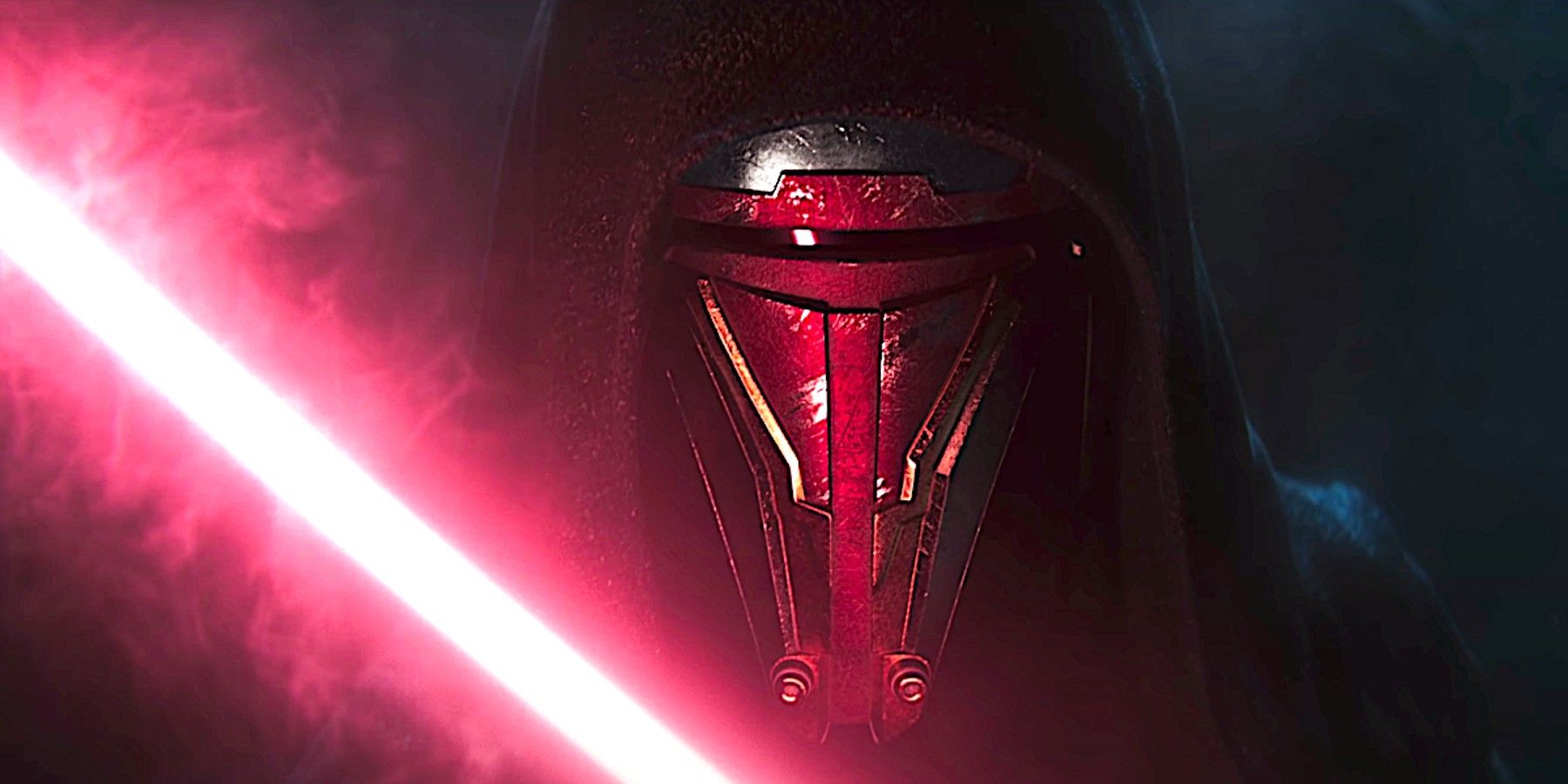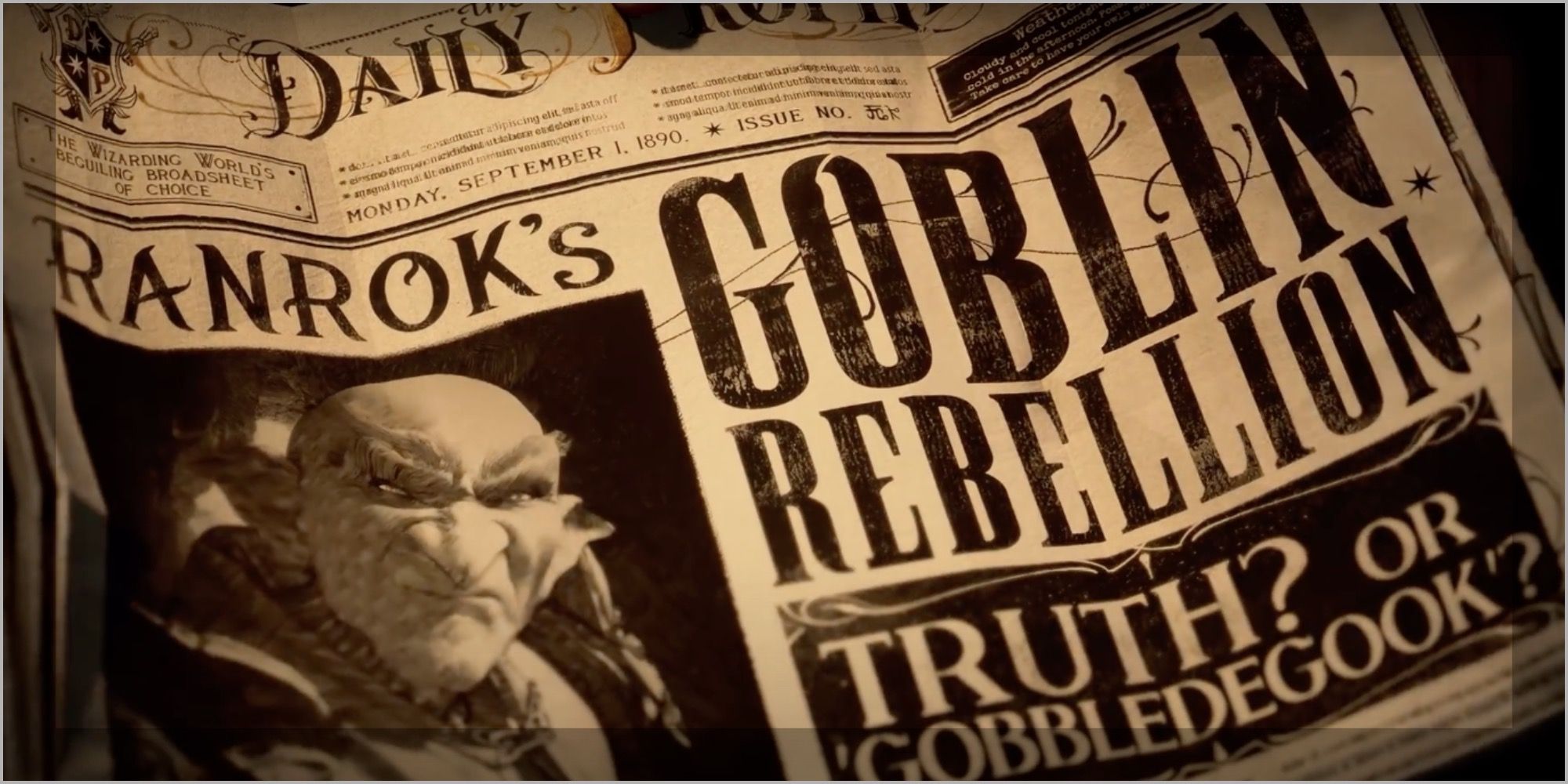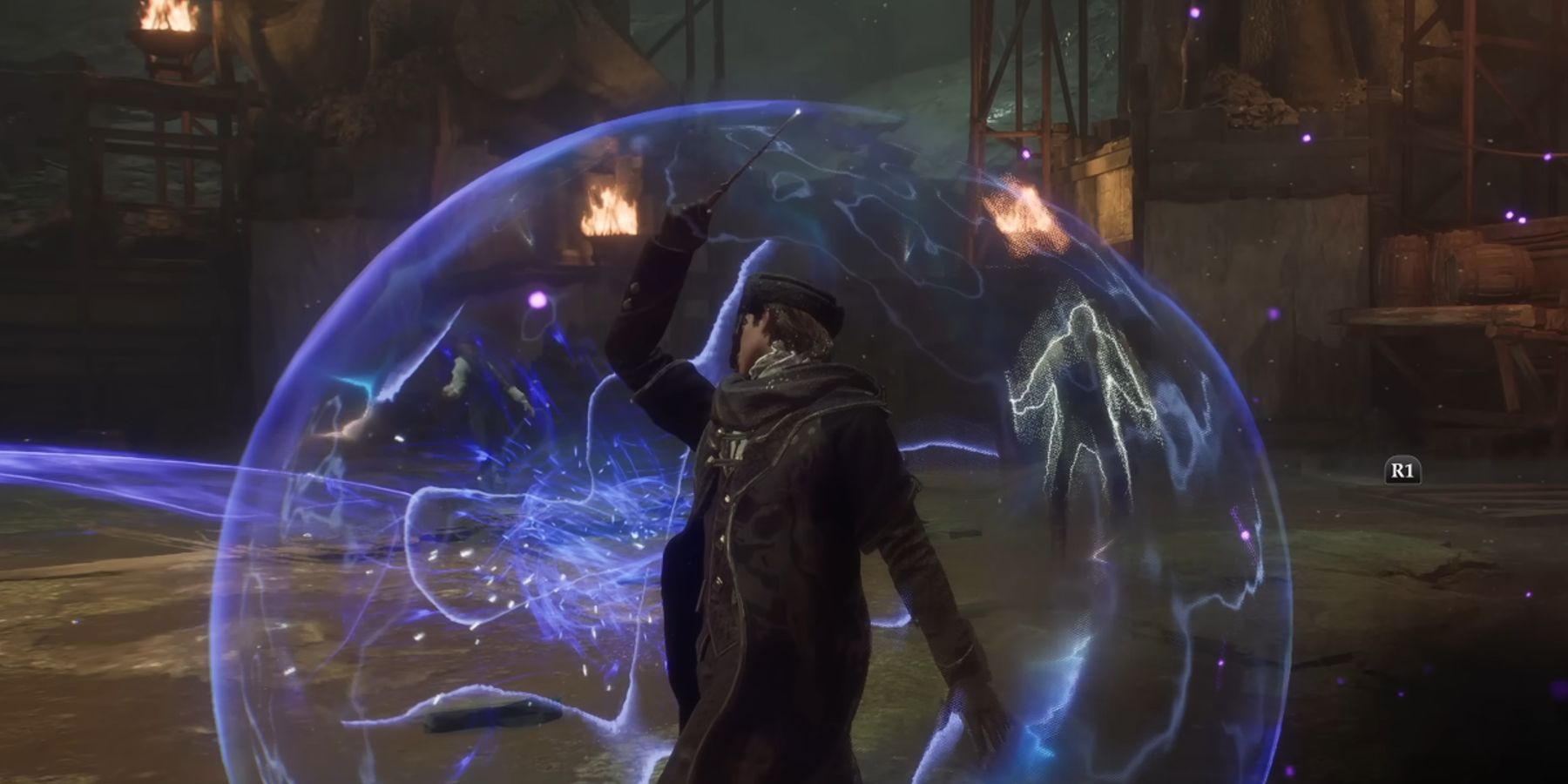The new Harry Potter game, Hogwarts Legacy is quickly gearing up to be one of 2023's more controversial releases. From the creator J. K. Rowling's political views to the problematic main story to the former lead designer's Gamergate ties, the game has several hurdles that it needs to overcome. Oddly enough, Hogwarts Legacy itself is a game that features what has been described as a "judgment-free" system which doesn't make sense.
Hogwarts Legacy was originally unveiled in 2020 during the PlayStation 5 showcase reveal. The game itself was pitched as an RPG that took place in the Harry Potter Wizarding World universe that focused on a player-created character in the late 1800s. Unfortunately, the game was officially revealed not long after creator J.K. Rowling began taking positions that have widely been vided as transphobic. To make matters more complicated, the developers made some controversial decisions regarding the main narrative and the player's abilities, and it lacks any kind of morality system to keep them in check.
Morality Systems Before Hogwarts Legacy
Morality systems have been in games for many years and have taken on many forms. While the concept had been in many games throughout the 80s and 90s, it was popularized thanks to its inclusion in the 2003 video game, Star Wars: Knights of the Old Republic. While the Star Wars: Knights of the Old Republic remake has an uncertain future, the original game was one that allowed fans to really choose between the Jedi and the Sith in ways that affected the overall story and even changed the ending. As the years went on, developer BioWare would continue to experiment with these systems in the various Mass Effect and Dragon Age games while another developer RPG developer did something a bit different.
Obsidian Entertainment was formed in 2003 and initially developed sequels to BioWare games the studio had otherwise moved on from. Its later projects would begin to boast a new kind of morality system that didn't so much affect the player character as it did the world around them and how that very same world viewed them. Fallout: New Vegas is a game with multiple endings that is dependent on this kind of system where you have to choose one faction over another. Pillars of Eternity 2: Deadfire and The Outer Worlds both build on this system, with entire towns, islands, factions, and even planets embracing the player character as a savior or driving them away like a demon. The majority of these games were also wise enough with their writing and design not to include any definitive "correct" answer to their respective world's problems. Despite a setting and plot that feels ripe for both BioWare's and Obsidian's style of morality, Hogwarts Legacy is apparently taking another direction.
Hogwarts Legacy's Controversial Main Narrative
The main narrative and primary antagonist of Hogwarts Legacy has generated a fair share of controversy. Before J.K. Rowling began expressing her political views out in the open, the world of Harry Potter was scrutinized for very different reasons. The biggest of these was the portrayal of goblins within the universe itself, which have been heavily criticized for their seemingly anti-Semitic appearances and characterizations. Even in later books, characters will describe goblins as "not like us" in relation to how they view valuable items and appear to be fundamentally untrustworthy.
Hogwarts Legacy takes place during the Goblin Rebellion of 1890 which was at least partially caused by Goblins being treated as second-class citizens that the Ministry of Magic actively suppressed. The main scheme of the primary antagonist is to kidnap the player character, and harvest their blood for a spell that will wipe out his enemies while aligned with a number of dark wizards. While the narrative is somewhat problematic, it does open the door for decision-making on the player's part that could potentially affect the world. While it's not clear if this will be the case it seems that, regardless of what the player does, the world at large won't react to their decisions, which is a massive missed opportunity.
If decision-making on how to deal with the Goblin Rebellion were to come up, it would only make sense that the world itself would judge you for your actions in Hogwarts Legacy's 70-hour game length. The Wizarding World frequently shows itself to be extremely classist and racist especially when it comes to non-human creatures and was likely far worse in the 1890s than it was in the 90s. Should the player take down Ranrok and his rebellion, it would make sense to have the world see the protagonist as a hero. On the other hand, supporting the antagonist and perhaps realizing that he's right would likely be seen as an act of betrayal and earn the player the scorn of society. Unfortunately, the lack of a morality system in Hogwarts Legacy and the developer's comments on the matter make that kind of society nuance unlikely. This is all the more baffling considering the horrible things players will be allowed to do in the upcoming game.
The Unforgivable Curses In Hogwarts Legacy
In March 2022, it was revealed that players could cast the three unforgivable curses in Hogwarts Legacy. First introduced in Harry Potter and the Goblet of Fire, the spells were revealed to the main characters by Barty Crouch Jr. disguised as Mad-Eye Moody. They are known as the Killing Curse, (Avada Kedava), the Imperius Curse, and the Cruciatus Curse. If caught using any of these curses, the witch or wizard in question would receive a life sentence in the universe's infamous prison, Azkaban. While it's not clear when these laws were put into place, it is reasonable to assume that, even in the 1890s, there was a serious societal stigma attached to the spells. This, unfortunately, is where things get tricky, as the developer has been a bit inconsistent about how using these abilities will affect the world.
In a recent GamesRadar interview, the studio stressed how the design of the game came from a place of non-judgment. Specifically, if players wanted to be evil the Hogwarts Legacy developer stated that players could be evil if they wanted. Should supporting characters see the player cast an Unforgivable Curse they will react to it and the world itself will apparently acknowledge it. However, they also stated that the game itself will not have a morality system that will punish them for their actions.
What isn't entirely clear about this is if it will affect gameplay in a meaningful way. Other games have handled this by having NPCs make comments about the player's character others can have you entirely banned from certain locations for their actions. The developer's words, however, seem to indicate that taking such actions won't affect the gameplay experience in a meaningful way. This is an especially bizarre decision, considering the gravitas these curses have had in the Harry Potter universe in the past.
The upcoming game is due for release next month and gamers will be able to see how this all fits together. The lack of a morality system in Hogwarts Legacy has been described as a double edge sword, but it's too early to tell if it will benefit the game or not. With all the various themes, subtext, and politics of the world intertwined with the story a morality system and a judgmental world not only seems obvious but necessary. The player plays an integral role in the rebellion of a group of second-class citizens and is able to commit capital crimes. Yet for some reason, the developer decided that the world would not judge or punish them for their actions. Ultimately it's a decision that, at this point, doesn't make sense.
Hogwarts Legacy is scheduled to release on February 10, 2023, for PC, PlayStation 5, and Xbox Series X/S, April 4, 2023, for PlayStation 4 and Xbox One, and July 25, 2023, for Nintendo Switch.
Source: GamesRadar




